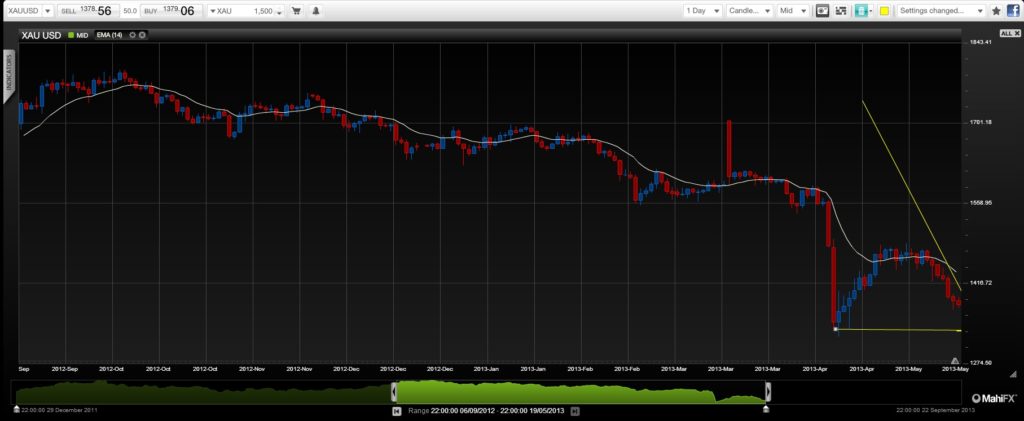Central banks through measures such as quantitative easing managed to stave off a global financial collapse and a repeat of the great depression, but unwinding these policies is likely to unleash a new wave of volatility in currency and asset markets.
On Thursday May 16, the IMF in its Global Financial Stability Report and World Economic Outlook warned that unconventional monetary policies in a relatively stable economic environment could stoke up a whole raft of new problems such as volatile capital flows and greater risk taking in the financial sector. It also said that these measures were justifiable if economic conditions were poor.
By Justin Pugsley, Markets Analyst MahiFX. Follow MahiFX on twitter at: https://twitter.com/MahiFX
It’s notable that nearly four years of aggressive monetary policy from leading central banks such as the US Federal Reserve has sparked synchronised rallies across all the main asset classes.
A withdrawal of those policies is likely to create synchronised bear markets across those same asset classes with gold, silver and the risk currencies likely to take a hard pounding. It’s notable that commodities including gold, copper and oil have visibly detached themselves from the recent equities rally. And during May even the 10-year US Treasury yield started rising, so investors are beginning to anticipate change.
Gold ready for another battering?
For much of this year the Fed has made public that it is mulling over winding down its quantitative easing programme and the Bank of England has, for the time being, decided not to start a new one. The IMF’s warnings over asset bubbles add to the mood music.
The USD is likely to be the big winner as the Fed would lead the way in the withdrawal from unconventional monetary policies. The US economy is growing at least, whilst the UK’s is hobbling along, the Eurozone remains mired in recession and Japan is still playing catch-up.
Currencies in the firing line
Equity markets remain remarkably complacent judging by sentiment measures, such as the VIX index. But also currencies such as GBP, which has managed to stabilise recently with the Bank of England ceasing to talk it down and because it is putting new QE programmes on hold.
The EUR is also likely to take a hit and commodity currencies such as AUD, NZD and CAD are already in full retreat. The newly debased JPY may turn out to be a little less vulnerable as Japanese investors typically repatriate funds during periods of high volatility and that means buying their own currency.
However, the little growth there is in developed countries has been achieved on the back of these vast liquidity injections. The question is could the US economy maintain some sort of growth without it, particularly with sequestration – tax rises and government spending cuts – gathering momentum.
The rout in equities and possibly bond markets that would follow a tightening of monetary policy would also concern policy makers who attach so much importance to the ‘wealth effect’ created by rising asset prices. It could also cause stress on the balance sheets of commercial banks due to their mandated large holdings of government bonds and other funding strategies, which depend on cheap money.
Any return to recession in the US would swiftly lead to an end of talk of cancelling QE. There may even be an unwinding of QE by the end of the year, but given the sluggish nature of the US recovery it is likely that QE will once again be deployed. But in the meantime, an attempt to withdraw it will unleash intense volatility across currencies and asset markets as they realign themselves towards a new monetary reality
However, one thing is for sure is that the world will eventually have to learn to live without QE as continuing to use it fosters potentially damaging financial bubbles, which could lead to another global crisis.

